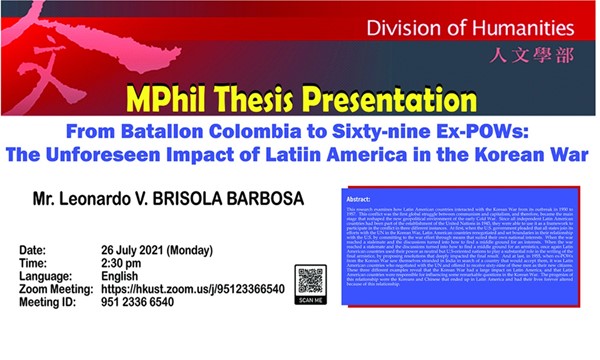Abstract:
This research examines how Latin American countries interacted with the Korean War from its outbreak in 1950 to 1957. This conflict was the first global struggle between communism and capitalism, and therefore, became the main stage that reshaped the new geopolitical environment of the early Cold War. Since all independent Latin American countries had been part of the establishment of the United Nations in 1945, they were able to use it as a framework to participate in the conflict in three different instances. At first, when the U.S. government pleaded that all states join its efforts with the UN in the Korean War, Latin American countries renegotiated and set boundaries in their relationship with the U.S. by committing to the war effort through means that suited their own national interests. When the war reached a stalemate and the discussions turned into how to find a middle ground for an armistice, once again Latin American countries used their power as neutral but U.S-oriented nations to play a substantial role in the writing of the final armistice, by proposing resolutions that deeply impacted the final result. And at last, in 1955, when ex-POWs from the Korean War saw themselves stranded in India in search of a country that would accept them, it was Latin American countries who negotiated with the UN and offered to receive sixty-nine of these men as their new citizens. These three different examples reveal that the Korean War had a large impact on Latin America, and that Latin American countries were responsible for influencing some remarkable questions in the Korean War. The progenies of this relationship were the Koreans and Chinese that ended up in Latin America and had their lives forever altered because of this relationship.
https://engage.ust.hk/event/7140069
huma@ust.hk
